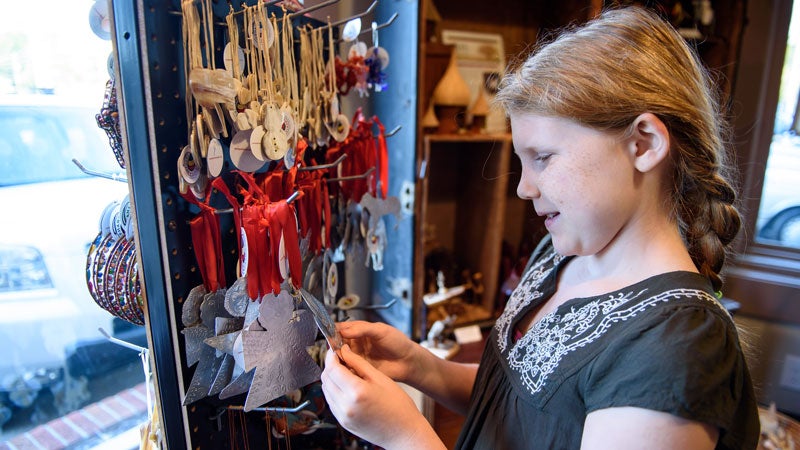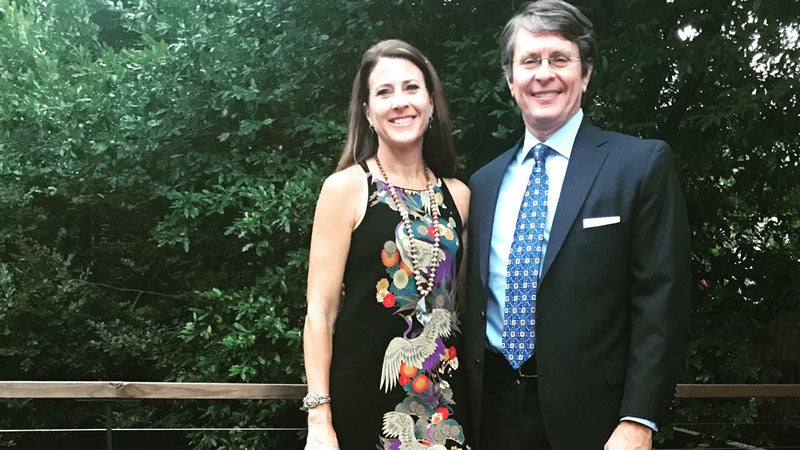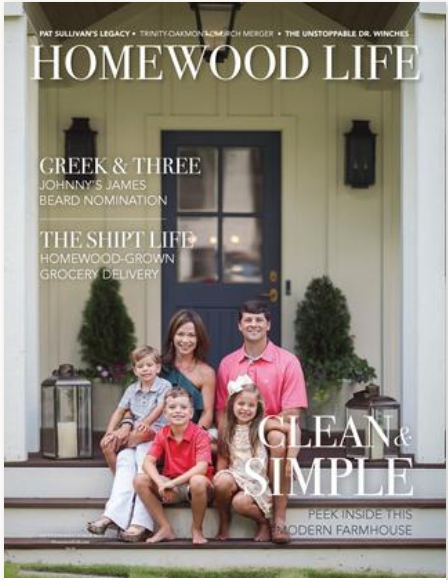Scott and Jamie Laslo’s first Christmas tree was an eclectic one. They married the week before Christmas and combined their ornaments they’d collected over time. “We went on our honeymoon, drove to Michigan, cut down our own Christmas tree and decorated it with ornaments from when we were kids,” Scott remembers.
Today ornaments are a year-round affair for the Laslos too—part of something much bigger than what goes on their family tree. With all decorations they sell through Ornaments 4 Orphans, Scott and Jamie can tell you the markets, villages, faces and names behind them in areas of Africa where they have built relationships. They’re artisan-crafted ornaments, yes, but perhaps most notably they have been fighting poverty and encouraging sustainability in Ugandan communities since 2010.
It’s a far cry from the back story of many other ornaments you can buy quickly and cheaply. “Christmas ornaments are a billion-dollar industry in the United States alone, and almost all of the ornaments that are coming in are from two towns in China,” Jamie says. “The working conditions are unsafe and toxic, but we aren’t thinking about who made them. When you think about what you’re celebrating at Christmas, we should celebrate with things that provide freedom and hope.”
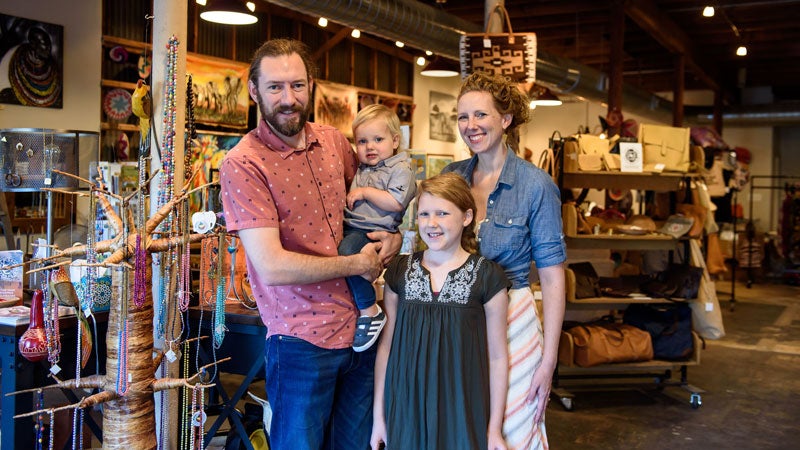 And that’s what Scott and Jamie look are seeking—freedom and hope for families and supporting struggling orphans in impoverished communities. But it isn’t about adoption.
And that’s what Scott and Jamie look are seeking—freedom and hope for families and supporting struggling orphans in impoverished communities. But it isn’t about adoption.
In fact, many Ugandan children classified as orphans really aren’t orphans at all, as the Laslos learned in their time in the country. “We were working with orphaned children, and over time, we realized, most of the kids have somebody,” Jamie says. Instead, most could not be cared for by their families and were given up due to deep poverty. “The aunt or uncle that dropped them off is often mom or dad,” Scott says. In Uganda, 80 percent of children in institutional orphan care have a living parent. And, in extreme cases, parents even get tricked into an agreement they did not realize meant giving up their children for adoption. Scott and Jamie, like most to first hear this reality, were shocked.
As students at Covenant College in Chattanooga, they met on their first trip to Uganda as part of a development mission trip. They planted a seed on this trip where they first got to know the country, the locals and each other. By their second trip the next year, Scott and Jamie were engaged, and by their next trip, Jamie was pregnant with their daughter. Now, Vivian is 10 and their 18-month-old son Samuel has not yet taken his first trip to Uganda.
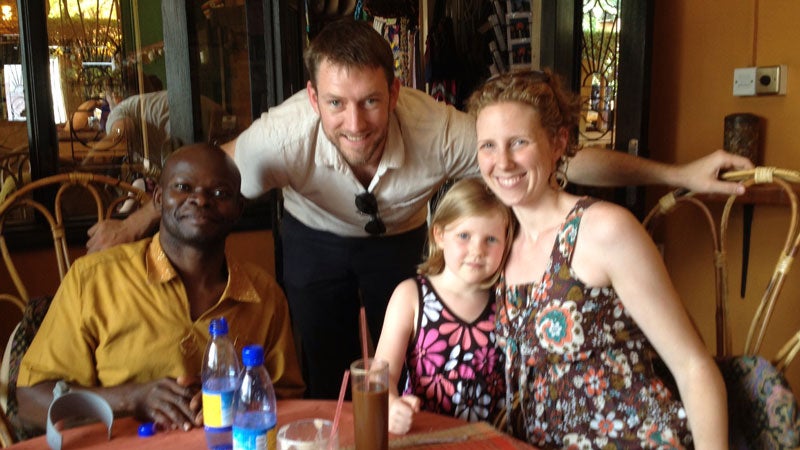 Struck by the desperation they witnessed since their first trips abroad, they’ve been searching for some kind of solution. Scott and Jamie first founded Pearl Ministries in 2004, a non-profit partnering with community organizations to help orphaned children in Uganda, the pearl of Africa. But they kept digging for something better, something truly fighting against this cycle of poverty. “We tried to learn along the way and be flexible, change and listen,” Jamie says. “The longer we did our non-profit work, we saw the effects it was having, good and ill, (and we were) thinking, ‘There’s got to be a more dignified way to help people and change this charity culture that we’ve imposed.’”
Struck by the desperation they witnessed since their first trips abroad, they’ve been searching for some kind of solution. Scott and Jamie first founded Pearl Ministries in 2004, a non-profit partnering with community organizations to help orphaned children in Uganda, the pearl of Africa. But they kept digging for something better, something truly fighting against this cycle of poverty. “We tried to learn along the way and be flexible, change and listen,” Jamie says. “The longer we did our non-profit work, we saw the effects it was having, good and ill, (and we were) thinking, ‘There’s got to be a more dignified way to help people and change this charity culture that we’ve imposed.’”
So, they looked for the root of these broken families. “We were throwing money at a problem but not really fixing anything,” Scott says. “Business can support the artisans and families in more sustainable ways.” Rather than taking children away from struggling families, the Laslos want to prevent that brokenness in the first place through employment.
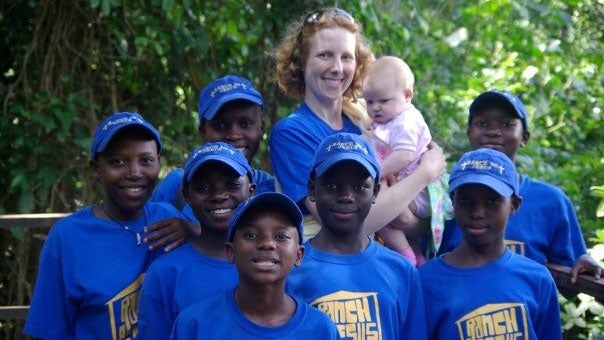 The couple had always loved the vibrant markets of Uganda, but now it has become the center of an answer. “We loved the craft, the beauty of the culture, and we loved giving people opportunities,” Jamie says. They saw that a mother can make beads or sew fabric, even while taking care of her baby at the same time. “We’re selling crafts that are handmade, and if there’s a market for that, then we can employ a lot of people. Those people who are working have dignity, working hard for what they’re earning,” Scott says. “They don’t need an organization to take care of their family anymore.”
The couple had always loved the vibrant markets of Uganda, but now it has become the center of an answer. “We loved the craft, the beauty of the culture, and we loved giving people opportunities,” Jamie says. They saw that a mother can make beads or sew fabric, even while taking care of her baby at the same time. “We’re selling crafts that are handmade, and if there’s a market for that, then we can employ a lot of people. Those people who are working have dignity, working hard for what they’re earning,” Scott says. “They don’t need an organization to take care of their family anymore.”
Although their Ugandan friends and partners do not celebrate the holidays by decorating trees, the Laslos found ornaments to be the a good artisan product for U.S. customers, even when explaining the custom to the artists sounds silly. “We’ve learned that everybody loves Christmas ornaments,” Jamie says. “A lot of people have the tradition of giving a new ornament every year, and in my family, it was always about something we’d done that year, or a trip we’ve taken.”
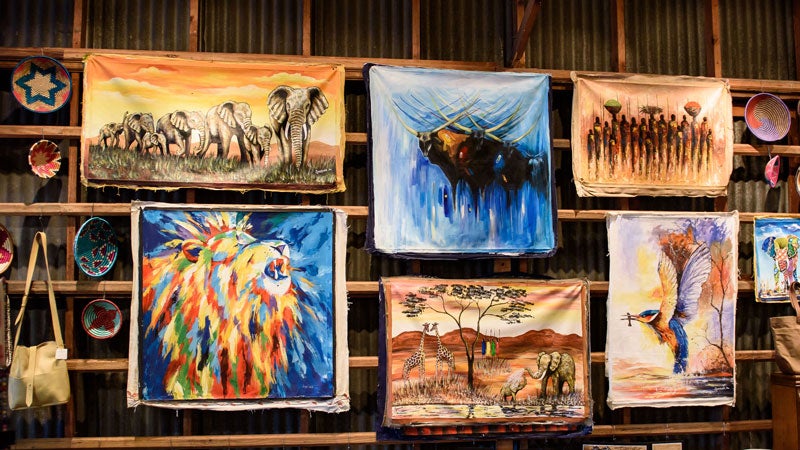 Along with Ornament 4 Orphans, the Laslos also launched their fair trade store Kanzi in 2010, which carries a variety of African vendors who share their passion to support artisans and their families. Named after the Swahili word meaning “hidden treasure,” Kanzi found a place in Homewood to store products in 2014 and opened its storefront on Central Avenue in 2016, with colorful beads and fabrics to fill the space with life.
Along with Ornament 4 Orphans, the Laslos also launched their fair trade store Kanzi in 2010, which carries a variety of African vendors who share their passion to support artisans and their families. Named after the Swahili word meaning “hidden treasure,” Kanzi found a place in Homewood to store products in 2014 and opened its storefront on Central Avenue in 2016, with colorful beads and fabrics to fill the space with life.
“Part of our vision is to bring the hidden treasures and feel of the culture of Africa to American and its marketplace. We want you to experience a little bit of Africa,” Scott says. The soft sound of African music in the background of the store, and Vivian can walk there after she finishes at Creative Montessori down the street.
For Scott and Jamie, it’s not about shopping fair trade as much as replacing mass-produced products with handmade, artisan goods. “It can be current and stylish, and still do good,” Jamie says, looking to the leather bags and throw pillows in their store. “You can do a little bit at a time. Some people would suggest first just switching your coffee, then maybe changing your chocolate, then buying used clothes.”
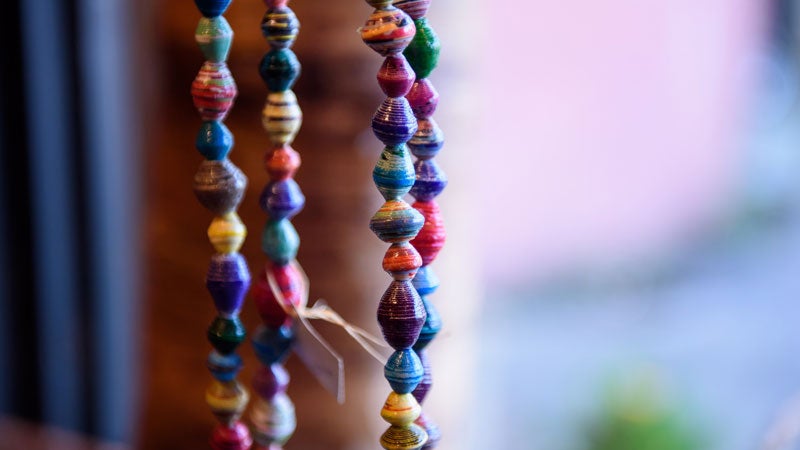 Between Ornaments 4 Orphans, the KANZI storefront, and other plans for projects overseas, their goals will take time and commitment, the Laslos realize. “(Uganda) is a young country, and we try to look for long time solutions,” Jamie says. “We might not even see what comes from everything. We just have to trust in what work we can do.”
Between Ornaments 4 Orphans, the KANZI storefront, and other plans for projects overseas, their goals will take time and commitment, the Laslos realize. “(Uganda) is a young country, and we try to look for long time solutions,” Jamie says. “We might not even see what comes from everything. We just have to trust in what work we can do.”
Learn more about Scott and Jamie’s organizations at ornaments4orphans.org or kanzicraft.com.
Where to Find Ornaments 4 Orphans
The ornaments range in style, from beaded stars to cloth animals. “We thought to ourselves, what’s different, what’s unique, what would set us apart?” Scott says. “You can really turn anything into a Christmas ornament.”
In person:
Kanzi
Located on Central Avenue next to Little Donkey
Online:
ornaments4orphans.org

